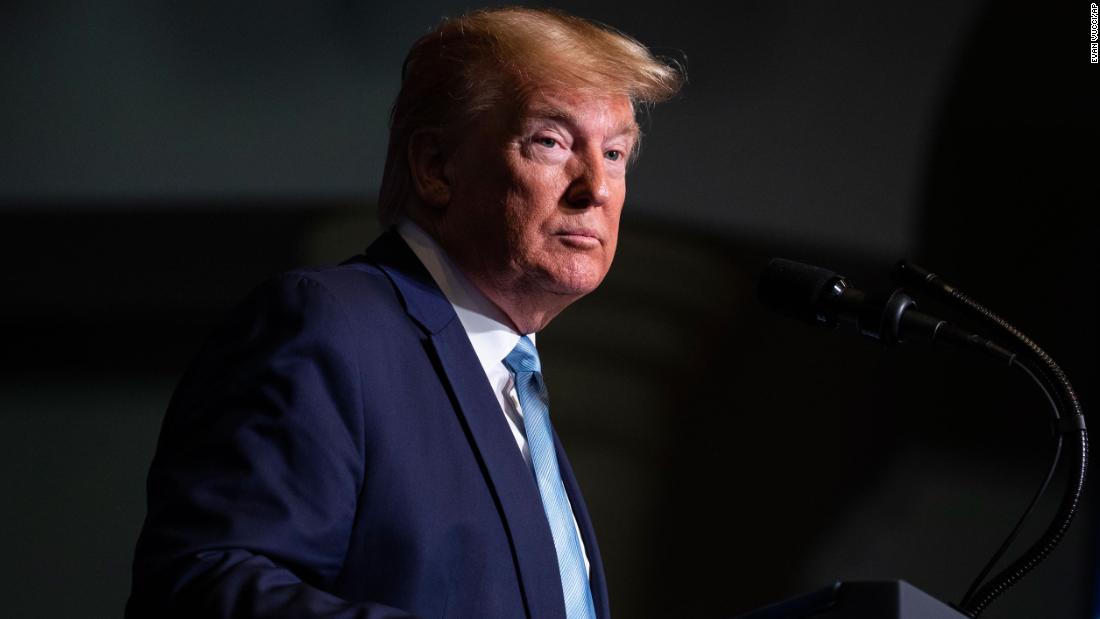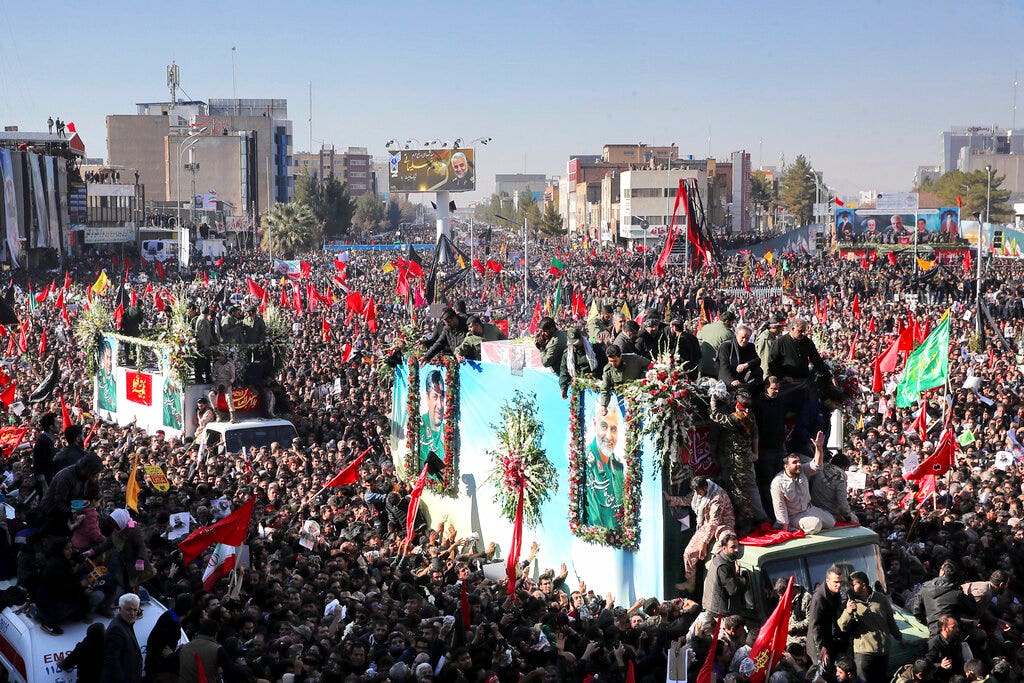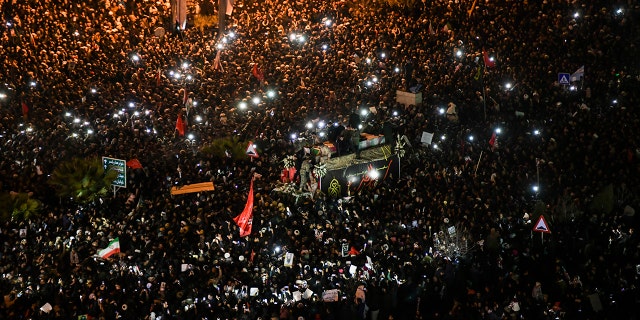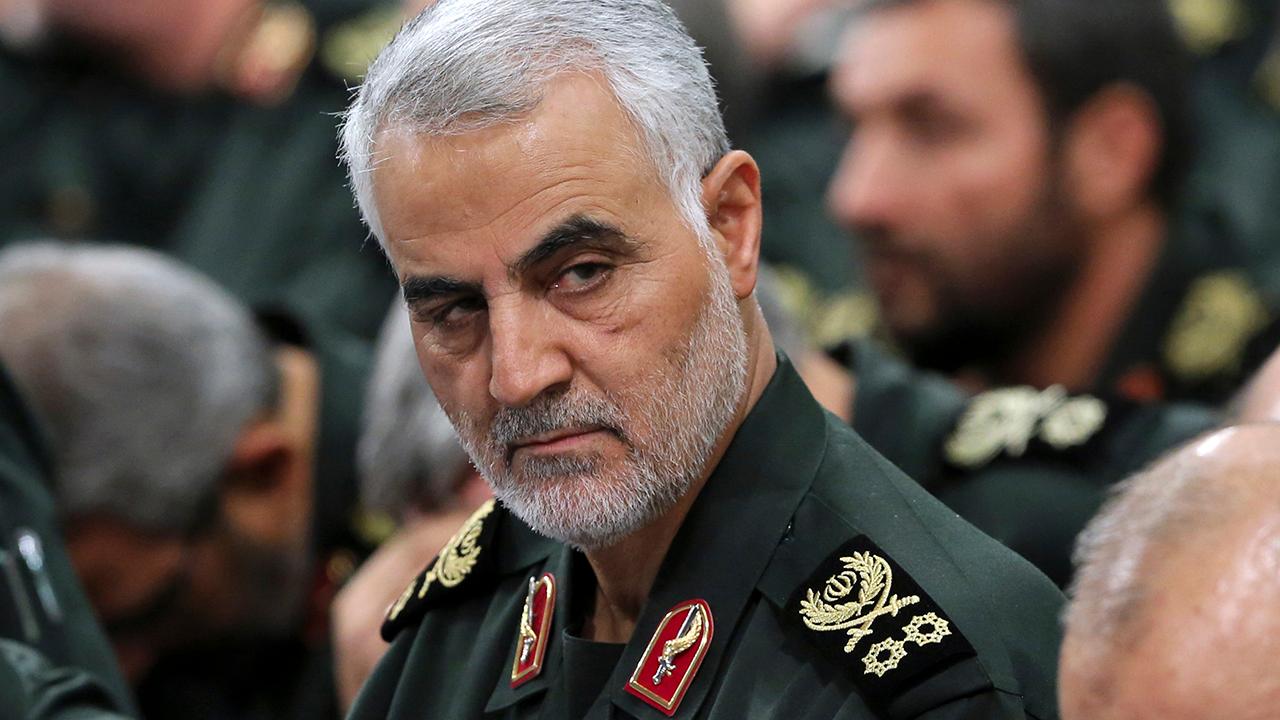Republicans cheering Trump's decision to target Iranian Maj. Gen. Qasem Soleimani have invariably described it as decisive. Democrats criticizing his choice have denounced it as impulsive. Whether voters ultimately see Trump's decision making in this case, and his handling of foreign policy more broadly, as decisive or impulsive could prove the pivotal dynamic in determining how comfortable they are with him managing the nation's global relations for a second term.
"The difference between decisive and impulsive turns in part on what happens after you make the decision," said Richard Fontaine, chief executive officer of the nonpartisan Center for a New American Security and a former top foreign policy adviser to the late Republican Sen. John McCain of Arizona. "If this in retrospect turns out well it won't easily be marshalled as an example of the bad things that you get when you have an impulsive president. If this is the beginning of a descent into Middle East chaos, this will be exhibit A in that case."
Recent Republican Presidents Ronald Reagan and George W. Bush presented themselves not as masters of complex international dynamics but as decisive men of action and conviction who would move with moral certitude to protect American national security. Reagan liked to say that "there are no easy answers, but there are simple answers." Bush called himself "the decider."
By contrast, the Democratic presidents over the past half century -- Jimmy Carter, Bill Clinton and Barack Obama -- have usually presented themselves as more deliberative. All focused on carefully weighing the second- and third-order implications of foreign policy decisions, particularly whether to use military force, and never losing sight of what political scientists have called the law of unintended consequences. Long meetings analyzing the potential ripple effects of every foreign policy decision were hallmarks of each man's presidency. Implicitly contrasting himself with Bush,
Obama internally even set as his guiding principle for foreign policy: "Don't do stupid [stuff]."
In practice, these portraits were always oversimplified: Reagan, for all his saber-rattling, was actually very cautious about using force and both Clinton (in the Balkans) and Obama (in Libya and Afghanistan) authorized substantial military operations. George H.W. Bush, the other Republican president since Reagan, probably tilted more toward the deliberative than the decisive side of this spectrum (though he too eventually pursued the first Iraq War to reverse Saddam Hussein's invasion of Kuwait.)
But many foreign policy experts agree that even with these qualifications there remains a clear separation in the style of leadership each party prizes.
"If you look at the difference between the recent Republican presidents versus Democratic presidents, which is a pretty good proxy, you certainly have people who are seen and see themselves as more decisive on the Republican side and more deliberative on the Democratic side," says Fontaine. "The rap against George W. Bush is he was a cowboy who shot first and asked which direction it was later; he often said, 'I go by my gut.' The rap on Obama was 'Well, he's Spock, he's cerebral, he thinks things to death.' "
The response to Trump's order to kill Soleimani has flowed precisely through these familiar grooves.
Perceptions of each party reinforced
Decisive has been the most consistent word of praise from Republicans applauding Trump's decision. "In ordering this attack, President Trump took decisive and defensive action to protect American lives and our nation's interest in the region,"
GOP Sen. Marco Rubio of Florida declared in a statement. Trump "took decisive, preemptive action," said
Republican Sen. Lindsey Graham of South Carolina. "This was a decisive blow,"
echoed John Bolton, Trump's former national security adviser, on Twitter.
The most common criticism from the opposing side has been that Trump acted rashly, without considering the the long-term consequences. "Trump makes decisions impulsively, without explanation," Sen. Bernie Sanders of Vermont said in Iowa last week, adding: "Once again we must worry about unintended consequences and the impact of unilateral decision making." Former Vice President Joe Biden said that by killing Soleimani, Trump "tossed a stick of dynamite into a tinderbox." On
ABC's "This Week" program, Senate Democratic leader Chuck Schumer warned, "We do not need this President either bumbling or impulsively getting us into a major war."
Democratic pollster Jeremy Rosner, who served on the National Security Council for Clinton during the 1990s, says these contrasting responses reinforce long-standing public perceptions about each party's strengths and weaknesses in managing national security.
"This difference is real and long standing," Rosner said. "On one side, the public tends to see Republicans as more forceful, more decisive, more willing to act, more willing to use force. That has a positive in that it strikes people often as strong and willing to act out of a sense of principles and vision and strategy. It also has a weakness in that it seems at times with W. Bush, or a little different way with Trump now, seems rash, impulsive, dangerous, trigger happy."
Democrats in turn, Rosner continued, "tend to be seen as less willing to use force, less certain about their strategic vision about national security, too hesitant sometimes and often too willing to heed US public opinion rather than to have some vision of strategic interests that supersedes public opinion. The positive side of all that is Democrats seem more deliberative, consultative, restrained, less trigger-happy, more prudent."
Americans aren't consistent in preference
Trump's overall record creates challenges for presenting him as a bold "decider" in the manner of Reagan or George W. Bush. Trump did act decisively to
strike at Syrian leader Bashar al-Assad for using chemical weapons against his own population -- a notable contrast with Obama, who also warned Syria against such an attack but ultimately blinked at delivering the punishment. But Trump has also displayed indecision and wavered conspicuously on other issues, from how to deal with North Korea to waiting until the very last moment before
calling off a planned earlier military strike against Iran for destroying an American drone.
"He hasn't been decisive across the board," says Peter Feaver, who was a National Security Council aide to George W. Bush and is now a professor of public policy at Duke University. "That works in this instance, but it doesn't work across the board. He has been feckless on Syria, feckless vis-a-vis Turkey, vis-a-vis Russia. While you are absolutely right that's how this will be portrayed, that's a hard sell if you look at the totality of his foreign policy."
Feaver, who studied public opinion and communications on national security issues for Bush at the National Security Council, and Rosner, who did the same for Clinton, both agree Americans have not consistently preferred a president seen as more decisive over one viewed as more deliberative, or vice versa. If anything, Americans have oscillated between the two poles, veering from Clinton to Bush to Obama and then Trump.
These assessments have "pluses and minuses for both parties," Rosner says. "Whether it is a plus or a minus tends to depend heavily, fundamentally, about how a particular operation or issue comes out. National security is the most unideological issue in the realm of public affairs. The only ideological [impulse] the public has is they like things that work."
For that reason, Feaver thinks Trump is in a more exposed political position than his Democratic critics over Soleimani's death. Most Democrats, he notes, have not definitively said they would have rejected the strike; they have only accused Trump of approving it without fully considering the potential costs. That leaves them enormous flexibility, he notes, to second-guess Trump if events warrant.
While the attack has not yet prompted retaliatory violence from Iran or its proxies, it has already produced diplomatic disruption, including
Iran's announcement that it was withdrawing further from its international agreement to limit its nuclear program, and the
vote by Iraq's Parliament to demand the withdrawal of American troops from the country.
Trump has responded with counter-threats to bomb Iran, including cultural sites protected under international law, if the country strikes American interests and to impose sanctions on Iraq if it evicts US forces. Though not yet producing military confrontation, this immediate cycle of action and response underscores how quickly tensions can escalate beyond the complete control of either side.
"The Democrats have an easier play here," Feaver said. "The 'decisiveness' of the President only wins politically if there are no unintended consequences, and I don't even think the Trump team believes that they are going to get away with this with no unintended consequences. There will be blowback, and whatever the blowback is will take the bloom off this rose."
Many political strategists have said that, given the pace of events in Trump's turbulent presidency, the decision to target Soleimani is unlikely to loom large for many voters next fall unless it triggers a sustained military confrontation with Iran. But it does seem likely to reinforce the basic portrait of Trump's behavior that each side is sketching for the 2020 election.
Democrats consistently portray Trump as volatile, uninformed and "erratic," a word that Schumer used repeatedly over the weekend to describe the President's foreign policy. Republicans, even those who sometimes criticize Trump's behavior or language, usually call him bold and confident, willing to make hard decisions and push through domestic and international opposition that other presidents would not.
The Soleimani killing offers plenty of evidence for both sides. Both the George W. Bush and Obama administrations
considered but chose not to strike at the Iranian leader. In making the opposite choice, Trump has again solidified his image as a leader who does not accept the boundaries that constrained other presidents. Now he must hope that whatever happens next across the Mideast persuades most Americans that the times demand a president willing to take such risks, not only for himself, but also for the country.



